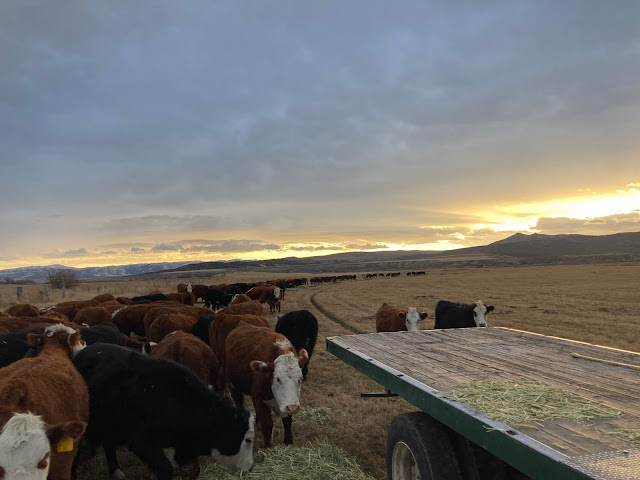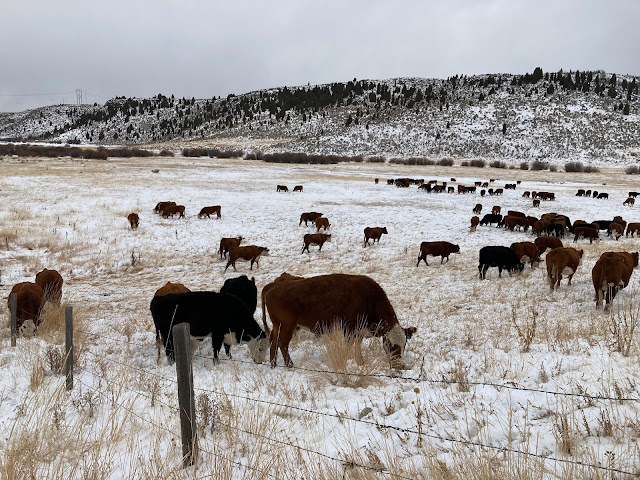It’s blowing from the north now. Mostly we get wind from the southwest, and this spring it's been horrid. And if it blows from the north, you can be sure it will be cold like it is today. Mostly, however, it’s not the wind that’s so bad, but the sand and dirt the wind picks up to pummel us with. Our pasture is covered with a layer of grit, as is the porch and deck, even the coats on the cows. An irrigation ditch that we rely on heavily every summer, and which follows along the north side of our neighbor’s farm, has filled to the brim with sand. How do you push water through that?
It’s discouraging. We’re only one irrigation hiccup away from our own Dust Bowl. Our community accepts the closures of the interstates north and south of us due to blowing soil as an act of God. No, God leaves plants on the ground and roots in the soil. Sometimes, when the mountains have disappeared behind a wall of blowing sand, I envision God as punishing us for our transgressions. I’m sure the folks caught up in the Dirty Thirties used that line too.
We’re on the tail end of calving. Mark has been, as usual, determined to give the herd the best care even if it means not caring for himself enough. Sometimes I have to look the other way. I help him, but it’s never enough. There’s some irony here because as I write, Mark is cooking breakfast!
My interest in writing this blog is waning. After 10 years it’s probably not surprising. Still, the stories of a ranch need told - our struggles, my indecisions, the thrill of springtime, the agony of sick calves or weed outbreaks. Our story is fragile in a way. As is all our stories if you think about it. I often say to Mark, “What’s to become of us?” (How does one respond to a question like that?)
Will we ever figure out a successful transition of the ranch from Mark's Mom and Dad? When will the younger generation settle on how the ranch fits into their future? And in the meantime, while we’re figuring and re-figuring, the ranch work lays out in front of us like a mountain to be scaled one slow and steady step at a time. Day after day - some happy, some angry, some boring, some brimming with gratitude, some with burden.
And so I write to make it all better. This blog has always helped by turning my attention to the beauty here at home. I can be in the middle of an unpleasant task, shoveling in the heat, riding in a cold drizzle or tallying a stack of debits, and then think of writing about it! I turn my camera to the world around me, find a fat caterpillar, a pink sunrise or a fluffy barn cat and I feel better.
 |
| a typical spring day |
















